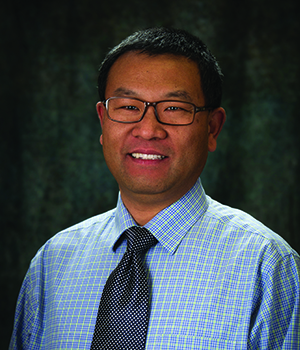If you're interested in applying chemistry to legal questions, you should consider majoring in forensic chemistry. Our forensic science major offers a concentration in forensic chemistry, in which you'll take upper-division courses that focus on chemical analysis of drugs, poisons, bombs, forgeries and more, all while getting a broad forensic training through the core forensic science courses. Our core forensic science curriculum is based on the requirements of the Forensic Education Program Accreditation Commission (FEPAC) of the American Academy of Forensic Sciences.
The time you'll need to complete the forensic chemistry major will vary based on your educational background, but the degree can be attained in four years. If you think that you might be interested in majoring in forensic chemistry, we strongly encourage you to speak with the forensic chemistry advisor, Dr. Juchao Yan, as quickly as possible about which classes to take and when. Many of our classes are not offered every semester, so working with the advisor in the forensic chemistry concentration will help you to ensure that you can enroll in all of the required classes for a timely graduation.
Special Services and Opportunities for Forensic Chemistry Majors
When you major in forensic chemistry, you'll get plenty of opportunities for hands-on learning. Our labs are based on student experiments, and you'll get the opportunity to work with instruments such as the Gas Chromatograph/Mass Spectrometer (GC/MS), the Micro Fourier Transform Infrared Spectroscope (FTIR). If you're interested in an internship to enhance your education with real-world experience and connections, we will endeavor to place you in one of our labs on campus, or to help you to find an external position with a local, regional, or state agency. We also strongly encourage you to design and conduct your own empirical research project, with the help and supervision of our faculty, and to present your results at a local or national conference.
Chemistry/Biochemistry Instrumentation
Advising for Forensic Chemistry Students
As a forensic chemistry major, your faculty advisor will be a renowned chemist who applies his knowledge to forensic questions. Dr. Yan fully understands the expectations of training in the field, as well as the University requirements for a timely graduation. All of the forensic science faculty are committed to responsible academic advising, and will work to help you to negotiate the course offerings and timing. We are specialists in our areas of advising and we have a strong record of helping our students advance in the field of forensic science.
Forensic Chemistry Service and Mutual Interest Organizations
The Forensic Science Society (FSS) is organized and run by the students from all three concentrations, so you'll get to take a role in deciding the focus and activities of the group, and you'll have the opportunity to take a leadership position on campus. In recent years, the FSS has taken field trips to various forensic facilities around the state, has participated in many campus-wide events, and contributed to a range of philanthropic projects to support the needs of the local community.
National Forensic Science Society
Scholarships and Financial Assistance for Forensic Chemistry Students
We are committed to helping you finance your education. You can find more information about admissions scholarships and find out why more than $22 million in financial assistance was awarded to students last year. Additionally, many ENMU students work part-time jobs on campus to help finance their education.
Find out more about financial aid >
Career Opportunities for Someone Who Majors in Forensic Chemistry
As a forensic chemistry major, you will be getting the broad foundations in science and forensics that could lead to a career as:
- Crime scene investigator
- Crime lab technician
- Quality control lab technician
- Biomedical testing specialist
- Commercial toxicology screening technician
- Research lab technician
- High school science teacher
- College professor
In addition to the help that you advisor can offer you in searching and applying for a rewarding job, the ENMU Career Services offers job placement assistance to all students.
View Career Services resources >
High School or General Education Courses to Take if You're Planning to Major in Forensic Science
If you are interested in pursuing any aspect of forensic science, it's important to remember that it is an applied science, so you can prepare by taking courses that will enhance your scientific knowledge and analytical skills, such as lab classes in chemistry, biology and physics, as well as statistics and calculus. Other courses that are helpful are those that help you to write more effectively, and any class that helps you to master the use computer hardware, software and other technology. Not surprisingly, photography and sketching are always helpful skills for work in our field.
Additional Degree Information for Forensic Science
Find additional information about the Bachelor of Forensic Science degree with a forensic chemistry concentration, including the specific courses you'll take when you're a forensic chemistry major.
View sample degree plan checklist >





